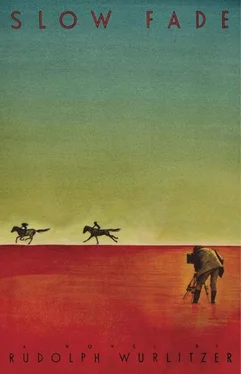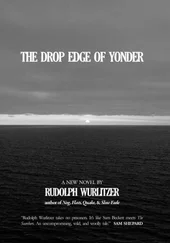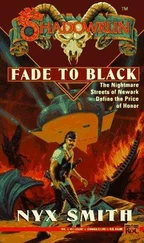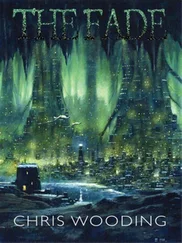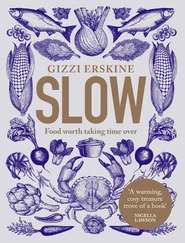“Two months later she had a miscarriage. She was very sick, and the local doctor thought she was going to die. She refused to give him anyone’s address, but he found a letter from me and wrote me in Delhi. Yeshe wanted to go, but for various reasons it was impossible, and I went alone. When I got up to the little village she was living in, she wasn’t there. She had left no forwarding address and not even the doctor knew where she had gone, saying only that she had been totally distraught and he was worried about her mind. When I got back to Delhi there was a note from her saying that she was in Benares and that she wasn’t well but she would survive and that Yeshe and I shouldn’t worry. But we were worried, and a few days later when you showed up Yeshe had very strong premonitions that your wife was headed for some kind of disaster and that Clementine had either died or was going to die. So the day after you left I flew to Benares.
“It took a week to find her. She was in Sarnath, an hour outside of Benares. She had gone there on a pilgrimage and was living in a government bungalow near the Deer Park, where Buddha preached his first sermon after attaining enlightenment. She was in one of those small rooms with a string bed, a bare light bulb on the ceiling, and no plumbing. It was clean enough, but it was next to a bus station and there was always a lot of noise. She was lying on the bed when I came in and didn’t know who I was. She had lost about thirty pounds and had chopped off her hair. I sat down on the bed and held her while she went limp in my arms. Finally she recognized me and was able to say my name and whisper that she was glad I had come. You apparently had never made it. I figured that you had seen how hard it would be on the road and had turned back. And then, to tell you the truth, I just forgot about you. It was clear that Clementine was dying. I tried to get her to a hospital or at least to a good hotel in Benares where I could get a doctor, but she refused. I thought of forcing her, but then I gave in because I was afraid that she would just die en route if she didn’t want to go. I fixed up the room as best I could and put in a mattress so that I could sleep beside her. She refused to eat anything but broth and some soft-boiled eggs that I made on a little kerosene heater. She had a few dharma books and I read her passages from the Bardo Thodol and recited prayers and mantras, particularly ‘Om gate gate parasamgate bodhi svaha’— Gone, gone, gone beyond, completely gone. I had never witnessed anyone’s death and even though that’s what the trip is supposed to be about, I felt unprepared. Clem was lying there on the bed way out beyond language, staring at me with her huge eyes as she slipped in and out of her body. I bathed her and tried to match my breathing with hers and after a while there was nothing else. I whispered what I could remember of the Bardo instructions, but I couldn’t tell if she heard me or not. At the end of two days and nights she opened her eyes and looked at me, forming ‘Yeshe’ with her lips, and then she turned her head to the wall and died. I had prayers said for her and saw that she was burned properly. I wrote you about her death, care of that address you gave me in Beverly Hills, but obviously it never got to you. And after that I forgot while Yeshe and I set out on our own pilgrimage through Australia, Hong Kong, Chicago, and finally here.”
That was all Byron cared to say. They sat around for a while and shot a game of pool, and then Walker took Byron home.
The next morning Walker drove to Vermont, intending to make a swing through New Hampshire and then down through Massachusetts and Connecticut before arriving in New York.
WHILE Walker was on his leisurely detour, Wesley and Evelyn were hanging out at the end of the Seventy-ninth Street Boat Basin in New York, contemplating the sleek and elegant yacht Eastern Star . It was a cool Sunday morning and the hint of fall was in the air. They were wearing matching outfits of blue Topsiders, wool-knit turtlenecks, and waterproof canvas pants, and they were both hung over and hesitant about being on the water, even on a structure as obviously well appointed and seaworthy as the Eastern Star . They had just about decided to pass and go back to bed when A.D. appeared on deck. He was dressed like a Marlboro ad and he was smoking a huge cigar.
“Ahoy there,” A.D. yelled down at them.
“I’m not going on board if there’s a camera around,” Evelyn said very quickly to Wesley.
“We’ve been getting great stuff,” A.D. went on as if he hadn’t heard Evelyn. “A give-and-take interview with our host, Toulouse, who is my kind of high roller, and now we’re going to establish the two of you coming on board.”
“The camera in its case and the key in my pocket,” demanded Wesley. “Or we’re gone.”
Sidney appeared next to A.D., wearing his safari jacket and cradling a 16mm camera in his arms.
“Wesley, consider the location,” Sidney said patiently. “We have a classic visual with you against the skyline saying what New York means to you, what films you’ve made here, what triumphs and disasters you’ve experienced. That kind of thing. Then we segue inside the boat with you firming the deal with Toulouse or maybe sabotaging the whole thing or who knows what?”
Evelyn reacted to all this by walking down the dock. Immediately Sidney locked the camera in its metal case and threw the key to Wesley. After Wesley had handed the key to Evelyn and she had thrown it in the river, they went on board, following A.D. and Sidney down a mahogany ladder into a spacious, softly lit salon.
The furniture was an odd combination of South Indian, contemporary Swedish, and Ethiopian. Formica tables and foot stools made from zebra and rhinoceros hides stood before low couches covered with silk patterns from the Bhagavad Gita. On the walls Indians and cowboys galloped through nineteenth-century paintings of frontier life in the Far West.
A large man with shiny black hair and a thin mustache rose to meet them. He wore designer jeans and a pink cowboy shirt with pearl buttons, and he looked not so much Indian as Eurasian.
“Fabulous,” he said, shaking Wesley’s hand. “It is a great honor. I know all your films frame by frame.”
“How unsettling, “ Wesley said.
“Not at all. A great satisfaction. But I’m sounding like Sydney Greenstreet. Please, sit down, Mr. Hardin, and your charming wife. Yes? Evelyn, I believe.”
They all sat on a couch and Toulouse pushed a button in an intercom and told the captain to cast off. At the same time a steward presented them with champagne and plates of caviar and smoked salmon, serving as well a party of five Asiatic men and women who occupied a corner on the far side of the room.
“One of my teams,” explained Toulouse. “For reasons of health and temperament, I have been at sea for the past several years and I arrange for my advisers and experts to fly in and visit me at regular intervals. That way I don’t become stale. Perhaps you do the same with your team? I have spent a good deal of time with them these past few days, and I must say I have found them to be candid and illuminating.
“But now I want to speak to you directly about the script, if that is possible? Good. I assume I may call you Wesley in the casual manner of the film community? Wonderful. First, Wesley, let me say again, from the bottom of my heart and soul, that I adore your films. I have an entire collection in my personal archives, as well as a record of everything you’ve said or written in public. So you see I am an aficionado. I love your passion and your fearless appreciation of the banal and ordinary, even your occasional violence, and I would be fascinated to see what your particular vision would do with a subject as vast and different as India. Such a film would be an important cultural and historical bridge. But on reading the script as it now stands, several reservations come to mind. Even though I am obviously an amateur, I can foresee how difficult and taxing such a film would be to make, and I’m not sure that it would be wise to undertake such an expedition, especially given the present state of your health, which your staff has kindly filled me in on. But more to the point, perhaps, is the script itself. Frankly, I find the two central characters dull and uninspiring, and I am unable to relate at all to the girl they are looking for. Clementine, I believe her name is. Also sex and religion are rather complicated subjects in India, and the script is highly offensive in both areas. There would most certainly have to be radical revisions to gain official approval. Your team has suggested adding another girl, to create a sort of theatrical triangle as a way of reducing the emphasis on a spiritual search, and also introducing some much-needed humor. I approve wholeheartedly.”
Читать дальше
